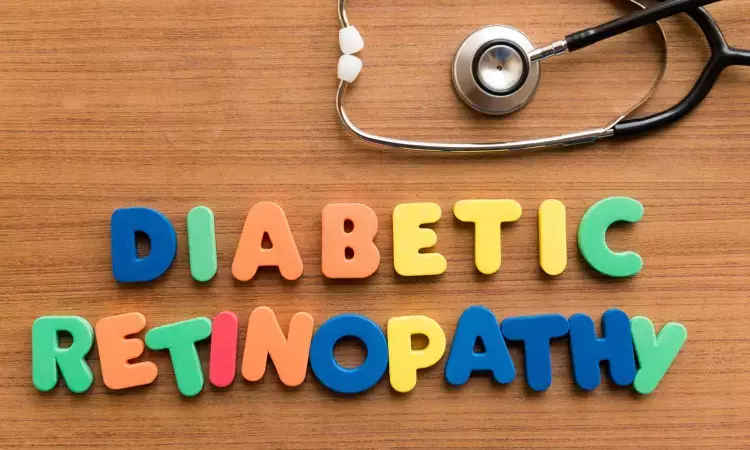- Home
- Medical news & Guidelines
- Anesthesiology
- Cardiology and CTVS
- Critical Care
- Dentistry
- Dermatology
- Diabetes and Endocrinology
- ENT
- Gastroenterology
- Medicine
- Nephrology
- Neurology
- Obstretics-Gynaecology
- Oncology
- Ophthalmology
- Orthopaedics
- Pediatrics-Neonatology
- Psychiatry
- Pulmonology
- Radiology
- Surgery
- Urology
- Laboratory Medicine
- Diet
- Nursing
- Paramedical
- Physiotherapy
- Health news
- Fact Check
- Bone Health Fact Check
- Brain Health Fact Check
- Cancer Related Fact Check
- Child Care Fact Check
- Dental and oral health fact check
- Diabetes and metabolic health fact check
- Diet and Nutrition Fact Check
- Eye and ENT Care Fact Check
- Fitness fact check
- Gut health fact check
- Heart health fact check
- Kidney health fact check
- Medical education fact check
- Men's health fact check
- Respiratory fact check
- Skin and hair care fact check
- Vaccine and Immunization fact check
- Women's health fact check
- AYUSH
- State News
- Andaman and Nicobar Islands
- Andhra Pradesh
- Arunachal Pradesh
- Assam
- Bihar
- Chandigarh
- Chattisgarh
- Dadra and Nagar Haveli
- Daman and Diu
- Delhi
- Goa
- Gujarat
- Haryana
- Himachal Pradesh
- Jammu & Kashmir
- Jharkhand
- Karnataka
- Kerala
- Ladakh
- Lakshadweep
- Madhya Pradesh
- Maharashtra
- Manipur
- Meghalaya
- Mizoram
- Nagaland
- Odisha
- Puducherry
- Punjab
- Rajasthan
- Sikkim
- Tamil Nadu
- Telangana
- Tripura
- Uttar Pradesh
- Uttrakhand
- West Bengal
- Medical Education
- Industry
Low Hb Levels may Increase Risk of Diabetic Retinopathy in Adults with Type 2 Diabetes: Study

A recent study published in the journal of Eye revealed that low hemoglobin levels may significantly raise the risk of developing diabetic retinopathy (DR). The findings highlight hemoglobin as an overlooked but potentially modifiable risk factor in managing type 2 diabetes.
The research used the TriNetX network from 2010 to 2022 and analysed data from over 57,000 adults aged 45 years and older with type 2 diabetes. The participants were divided into a low hemoglobin (LHB) group, defined as 8–12 g/dL, and a control group with levels ≥12 g/dL. To ensure balanced comparisons, propensity score matching was employed to account for confounding factors such as age, sex, and comorbidities.
The study tracked the onset of new DR cases within a 6 to 36 month follow-up period. The results showed a striking increase in risk among the individuals with lower hemoglobin. Specifically, the LHB group underwent a 33% higher risk of developing overall DR when compared with controls. When broken down into subtypes, the risk of proliferative DR was nearly doubled (HR: 1.95). Non-proliferative DR, a less severe but still concerning stage, also showed a modest yet significant risk increase of 19% (HR: 1.19).
The study found that even mild reductions in hemoglobin (10–12 g/dL) were enough to elevate DR risk, suggesting that attention should not be limited to only severe anemia cases. Subgroup analysis shed further light on this relationship. The association between low hemoglobin and DR was stronger in patients without hypertension (HR: 1.58 vs. 1.21 in hypertensive individuals).
It also remained consistent regardless of blood sugar control, as measured by HbA1c, highlighting hemoglobin as an independent factor. Also, men appeared more vulnerable than women, showing a more pronounced association.
Overall, these findings have important implications for clinical practice. While blood glucose and blood pressure management remain cornerstones of diabetes care, the study suggests that routine monitoring and optimisation of hemoglobin levels could play a critical role in preventing sight-threatening complications.
Source:
Hung, K.-C., Chang, L.-C., Chang, Y.-J., Hsu, C.-W., Yew, M., Wu, J.-Y., & Chen, I.-W. (2025). Association between haemoglobin levels and the risk of diabetic retinopathy in adults with type 2 diabetes: a retrospective cohort study using the TriNetX network. Eye, 1–8. https://doi.org/10.1038/s41433-025-03982-0
Neuroscience Masters graduate
Jacinthlyn Sylvia, a Neuroscience Master's graduate from Chennai has worked extensively in deciphering the neurobiology of cognition and motor control in aging. She also has spread-out exposure to Neurosurgery from her Bachelor’s. She is currently involved in active Neuro-Oncology research. She is an upcoming neuroscientist with a fiery passion for writing. Her news cover at Medical Dialogues feature recent discoveries and updates from the healthcare and biomedical research fields. She can be reached at editorial@medicaldialogues.in
Dr Kamal Kant Kohli-MBBS, DTCD- a chest specialist with more than 30 years of practice and a flair for writing clinical articles, Dr Kamal Kant Kohli joined Medical Dialogues as a Chief Editor of Medical News. Besides writing articles, as an editor, he proofreads and verifies all the medical content published on Medical Dialogues including those coming from journals, studies,medical conferences,guidelines etc. Email: drkohli@medicaldialogues.in. Contact no. 011-43720751


